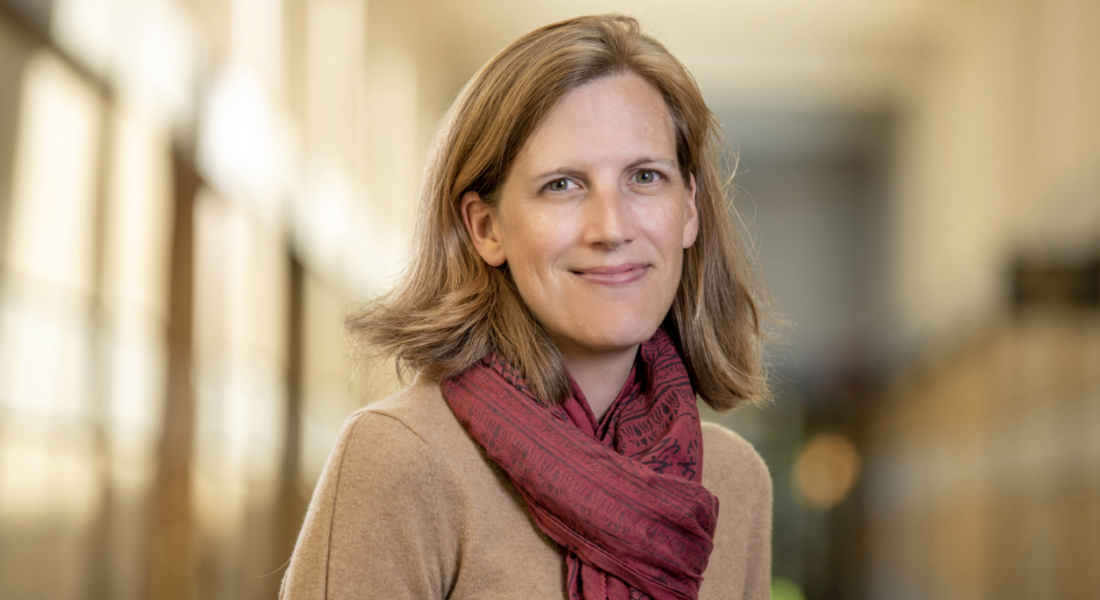
For UN watchers, this week marked peak season as the 78th General Assembly began its high-level meetings in New York. With an address from US President Joe Biden, a session on the seventeen Sustainable Development Goals, and a climate summit focused on phasing out fossil fuels, everyone from diplomats to development professionals has been keeping a close eye on the proceedings.
Kellogg Faculty Fellow Erin Graham, associate professor of global affairs at the Keough School, is among this group. A political scientist who studies the UN, Graham is the author of the new book Transforming International Institutions: How Money Quietly Sidelined Multilateralism at the United Nations, published by Oxford University Press.
The evidenced-based insights from Graham’s book provide a behind-the-scenes–and often surprising – picture of the UN, whose influence some say has declined over the years, but is still considered important in global affairs.
For example, while media coverage of the General Assembly – the UN’s main deliberative body – often portrays a cohesive “parliament of the world,” in reality the United Nations is a more decentralized system of organizations than news headlines might indicate, Graham said.
“The UN is actually composed of many multilateral bodies, with the General Assembly being the one that most people know. But the entities that make up the UN Development System such as the UN Development Program, the UN Environment Program, or UNICEF, all have their own governing boards and are relatively detached from General Assembly politics.”
While the founders’ vision of the UN General Assembly was that of an egalitarian, multilateral body, and this vision shaped the groups governing the different programs within its system, an examination of how UN programs are funded paints a different picture, Graham said.
“We would expect money given through the UN to flow from the donors into a big pot, and then the donor becomes invisible, and that money is distributed according to multilaterally determined priorities,” Graham said. “But over time, more countries have begun to earmark their contributions for certain countries or projects.” The upshot of this practice, Graham said, is that much of the money channeled through the UN actually looks more like bilateral aid – when one government directly transfers money or other assets to a recipient country – rather than aid that has been determined by group consensus.
The United States often earmarks its contributions according to geopolitical priorities, such as stabilizing parts of Afghanistan and Iraq, and France often channels its resources toward its former colonies. While some countries – Germany, for example – are evolving in the opposite direction and trying to provide more un-earmarked funds and support the multilateral nature of the system, the trend in contributions has shifted dramatically toward earmarking.
“It’s not like the money that’s earmarked goes for things that shouldn’t get money, it just means that it’s probably a different allocation than it would be if it were done multilaterally,” Graham said.
Graham has brought these and other insights from her research into the classroom, where she teaches an undergraduate seminar course and the master of global affairs course Foundations of Global Governance.
While the UN doesn’t operate as the multilateral body that its founders may have intended it to in the wake of the Second World War, it’s still a relevant organization today, Graham said.
“The UN matters, but it can matter in ways that are obvious and ways that are less obvious,” Graham said. UN activity in the climate realm serves as an example. She notes that the UN Framework Convention on Climate Change, an international environmental treaty to reduce greenhouse gas levels in the atmosphere, is significant. The Framework Convention will help coordinate the global stock-taking that will take place at the 2023 UN Climate Conference, known as COP28, which will take place in Dubai from November 30 to December 12. But activity in other, less visible corners of the UN could prove equally important. For instance, ongoing UN negotiations to reform current investor-state dispute settlement (ISDS) – a set of rules that empower corporations to sue states when they enact domestic legislation that alters the investment environment – could prove significant. Reforms would enable the adoption of climate-friendly policies by removing the possibility of costly lawsuits from private firms.
Overall, Graham said, it’s important to think of the UN as a diverse set of organizations, directed and held accountable primarily through a multitude of contracts with bilateral donors or “minilateral” groups – small groups of nations collaborating to tackle problems or pursue shared goals.
“With this view in mind, we can better understand the nature of the system, its contradictions, and strengths.”
This article originally appeared at keough.nd.edu.
The Kellogg Institute for International Studies, part of the Keough School of Global Affairs at the University of Notre Dame, is an interdisciplinary community of scholars and students from across the University and around the globe that promotes research, provides educational opportunities, and builds partnerships throughout the world on the themes of global democracy and integral human development.





